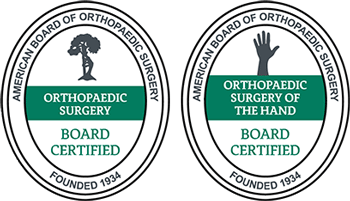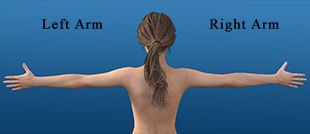Is Cracking Your Knuckles Bad?

Crack your knuckles by Jaysin Trevino is licensed with CC BY 2.0
Knuckle cracking is a common behavior, typically performed unconsciously. For many, it’s a harmless coping mechanism. To others, it’s a potentially harmful habit that can cause joint-related problems such as arthritis. Let’s explore this issue so that you can better understand the meaning and mechanism of knuckle cracking.
What Does It Mean To Crack Your Knuckles?
Cracking a knuckle is the act of manipulating a joint of the hand so that it creates a cracking or popping sound. The act involves applying pressure or tension on one or several digits so that they forcibly flex or extend. The “knuckles” being cracked can refer to multiple joints. Typically, individuals who crack their knuckles do so with the metacarpophalangeal joints (where the digit bones and hand bones meet) and the proximal interphalangeal joints (the middle knuckle of the finger). It’s also possible to crack the thumb’s interphalangeal joint (middle knuckle).
Why Do People Crack Their Knuckles?
Knuckle cracking is typical behavior, with some researchers estimating more than a 50% prevalence. There are various reasons why so many people engage in this behavior. Many people enjoy the physical sensation it provides. The act of knuckle cracking seems to relieve pressure or tension in the joint. Afterward, it may temporarily feel as though it’s more limber or mobile. Certain people also like the sound, particularly of multiple knuckles cracked together. To them, the auditory sensation is satisfying.
Knuckle cracking is also a common coping mechanism. Nervous people, for example, may appreciate having something to do with their hands while dealing with a tense situation. In times of stress, knuckle cracking serves as an activity for channeling feelings or providing a brief, pleasing distraction.
Whatever their primary reason, knuckle crackers often come to adopt the behavior as a habit. At that point, the act of cracking their knuckles is just something they frequently do throughout the day without putting any thought into it.
What Exactly Is Happening When Your Knuckles Crack?
Researchers aren’t 100% certain about the exact mechanism of knuckle cracking, but they do have a reasonably good idea. Studies involving MRI suggest that the physical action of manipulating the digits to crack the knuckles broadens the space between the affected bones and joints. Within these spaces is synovial fluid that contains small bubbles of gas. The enlarged space effectively causes the bubbles to collapse on themselves. The sound and sensation of the cracked knuckle derive from those collapsed bubbles.
The bubbles require some time to form again in the synovial fluid. For that reason, you can’t repeatedly crack a particular knuckle without first allowing the bubbles to reaccumulate. If you can “crack” a joint without this recovery time, that may indicate a ligament or tendon issue rather than a true instance of knuckle cracking.
Is It Bad To Crack Your Knuckles?
Currently, no data supports the notion that cracking your knuckles is bad for orthopedic health. Specifically, there appears to be no causal relationship between knuckle cracking and arthritis. A fairly well-known piece of evidence for the innocuousness of knuckle cracking comes from Dr. Donald L. Unger, a California physician. Over six decades, Dr. Unger carried out a self-experiment in which he regularly cracked the knuckles of his left hand but left alone those of his right hand. At the end of the experiment, X-rays showed no appreciable difference in the progression of arthritis in his hands.
However, an individual can experience pain or discomfort upon cracking a knuckle. Such instances may suggest the presence of an underlying condition, such as a ligament tear or a loose body, and further cracking of the knuckle could exacerbate the condition. Alternatively, the individual may have caused an injury by applying excessive pressure while cracking their knuckle. Researchers have noted instances of joint and tendon injuries resulting from undue force.
Another possibility is that the cracking sound is actually the snapping of soft tissues that have grown inflamed or irregular secondary to arthritis. In the latter case, the cracking doesn’t cause arthritis but is a symptom of it.
How To Stop Cracking Your Knuckles
If you’re a habitual knuckle cracker with an underlying joint or soft-tissue abnormality in your hands, or if you just want to kick the habit, consider these tips to help you stop cracking your knuckles:
Understand Your Motivation
The first thing to do is examine why you crack your knuckles. Understanding your motivation behind the habit can guide your attempts to quit it. Maybe you regularly experience stress, and knuckle cracking provides you with moments of gratification. In that case, you can begin to explore the root of your stress and try to eliminate or mitigate your stressors.
Try Alternative Coping Mechanisms
One way to kick a habit is to replace it with another, healthier one. Often, people crack their knuckles because they want something to do with their hands, so a handheld distraction could be an effective resolution. Some alternative coping mechanisms to try are stress balls, fidget devices, therapy dough, stretch bands, and combination puzzles.
Be More Mindful
Habits tend to have a strong unconscious element to them, so being more mindful and present in the moment can bolster you to make conscious decisions to stop yourself from cracking your knuckles. As you work or go about your day, make it a point to avoid distractions and focus on the small details of your environment and actions. In this way, you can help train your mind to avoid the habit you want to break.
When Should You See a Doctor?
If you crack a knuckle and experience pain, swelling, or misshaping of the joint, then it’s probably a good time to see a medical professional. A hand specialist can evaluate the affected area for an underlying abnormality and provide you with the appropriate treatment. In the event that your symptoms have resulted from an acute injury to the joint, treatment can correct the insult or at least prevent worsening.
Though knuckle cracking seems to be an innocuous habit for most, there is the possibility of injury or exacerbation of an existing condition. If you suspect you have a problem with any of the joints in your hand, contact us today. At the Hand and Wrist Institute, we strive to provide you with the best treatment possible.

























